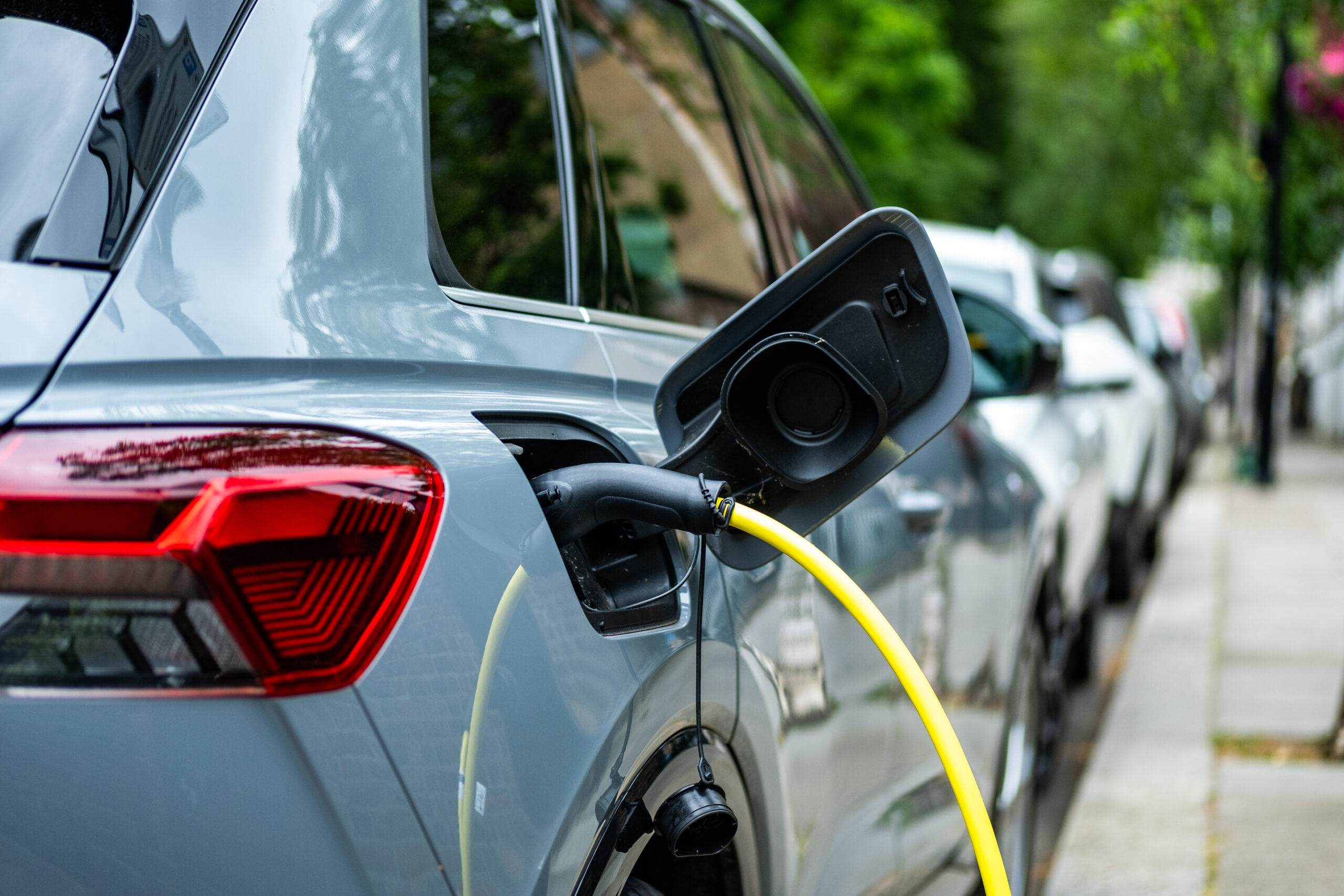As a specialist in renewable energy, we have long championed the transition towards cleaner, more sustainable technologies. While our core services focus on commercial solar energy systems and battery storage solutions, we recognise the critical role that electric vehicles (EVs) play in the wider journey to a net-zero future. This blog explores the many advantages of electric vehicles, particularly in the context of sustainable business practices, environmental impact, and long-term energy efficiency.
What are the advantages of electric vehicles?
When we discuss the advantages of electric vehicles, it’s vital to view them through the lens of a broader energy strategy. EVs are not simply about changing the type of car we drive. They represent a fundamental shift in how we generate, store, and use energy. As a renewable energy company, we understand that this shift complements our mission of making the planet better for future generations.
Environmental advantages of electric vehicles
One of the most significant advantages of electric vehicles is their potential to dramatically reduce greenhouse gas emissions. Unlike conventional petrol or diesel cars, EVs produce zero tailpipe emissions. When charged using renewable energy sources such as solar or wind, their carbon footprint is considerably lower throughout their lifecycle.
Moreover, electric vehicles help improve air quality, especially in urban areas. Reduced levels of nitrogen dioxide and particulate matter contribute to healthier cities, benefiting public health and reducing pressure on healthcare systems. As more businesses and local authorities adopt EV fleets, the cumulative environmental benefits will be substantial.
Economic advantages of electric vehicles for businesses
The advantages of electric vehicles extend far beyond environmental gains. For commercial enterprises, EVs offer compelling financial benefits. One of the key advantages of electric vehicles is their lower operating cost. Electricity is generally cheaper than fossil fuels, and the maintenance requirements for EVs are significantly lower due to fewer moving parts.
Fleet operators, in particular, stand to make substantial savings. Whether transporting goods or offering services, switching to electric vehicles can reduce fuel expenses and minimise downtime. As energy specialists, we often help our clients integrate solar energy systems with EV charging infrastructure, enabling them to power their fleets with clean, self-generated electricity. This dual investment further enhances energy resilience and reduces dependence on volatile fuel prices.
Energy efficiency: a core advantage of electric vehicles
One of the technical advantages of electric vehicles is their superior energy efficiency. EVs convert over 77% of electrical energy from the grid to power at the wheels. In contrast, conventional internal combustion engines typically convert only around 12%–30% of the energy stored in petrol.
This efficiency translates to better use of resources, especially when paired with onsite renewable generation and battery storage. By integrating EV charging points with commercial solar arrays and energy storage systems, businesses can optimise their energy usage, avoid peak tariffs, and even benefit from smart energy management systems.
Advantages of electric vehicles in achieving net-zero goals
For businesses committed to achieving net-zero carbon targets, the advantages of electric vehicles are clear. Transitioning a vehicle fleet from petrol or diesel to electric is one of the most effective ways to reduce Scope 1 emissions and we’re proud that most of our company fleet comprise of electric vehicles. When combined with renewable electricity generation on-site, such as solar panels installed by specialists like ourselves, companies can significantly lower their overall carbon footprint.
In sectors such as logistics, manufacturing, and retail, where transport plays a key role in daily operations, EV adoption sends a strong message about environmental leadership. It also helps meet regulatory expectations and improve ESG (Environmental, Social, and Governance) ratings, which are increasingly scrutinised by investors and stakeholders.

Charging infrastructure and the role of renewable energy
One of the common concerns businesses face when considering EV adoption is the availability and cost of charging infrastructure. However, this challenge is also an opportunity. By investing in solar-powered EV chargers and battery storage, companies can take control of their energy supply, reduce demand on the grid, and future-proof their operations.
We work closely with clients to design and install bespoke energy systems that integrate solar generation with battery storage and EV charging stations. This holistic approach maximises the advantages of electric vehicles while ensuring energy security and long-term savings.
Government support and incentives: boosting the advantages of electric vehicles
The UK government has introduced several grants and incentives to encourage the adoption of electric vehicles. From plug-in vehicle grants to workplace charging scheme support, these financial mechanisms enhance the economic advantages of electric vehicles for both individuals and organisations.
Businesses can also benefit from tax incentives such as lower Benefit-in-Kind (BiK) rates for employees using electric company cars. Combined with reduced maintenance and fuel costs, these incentives further tip the scale in favour of EVs.
The broader societal advantages of electric vehicles
Beyond individual businesses, the wider adoption of electric vehicles contributes to national and global sustainability goals. EVs help reduce dependence on imported oil, improve energy security, and support the transition towards a decentralised, renewable-powered economy.
Moreover, as more EVs enter the market, the demand for renewable energy increases, reinforcing the importance of solar and battery storage solutions. This virtuous cycle creates new jobs, drives technological innovation, and positions the UK as a leader in clean transport and green energy.
Looking ahead: how to maximise the advantages of electric vehicles
To fully realise the advantages of electric vehicles, it’s essential for businesses to take a strategic approach. This involves assessing current energy usage, exploring renewable generation opportunities, and planning for long-term energy needs.
Working with a specialist in renewable energy like Harvest Green Developments ensures that these elements are aligned. Our experience in designing integrated solar and storage systems allows us to help clients create tailored solutions that meet their operational, financial, and sustainability goals.
In conclusion: the time to embrace the advantages of electric vehicles is now
The advantages of electric vehicles are too significant to ignore. From environmental protection and cost savings to improved energy efficiency and progress towards net-zero targets, EVs represent a transformative opportunity for businesses ready to lead on sustainability.
As a company with decades of experience in renewable energy, we understand how electric vehicles fit into the bigger picture. By combining EV adoption with solar energy and battery storage solutions, businesses can future-proof their operations and contribute meaningfully to a greener tomorrow.
If you’re ready to explore how electric vehicles and renewable energy can work together for your business, get in touch with our expert team today.
